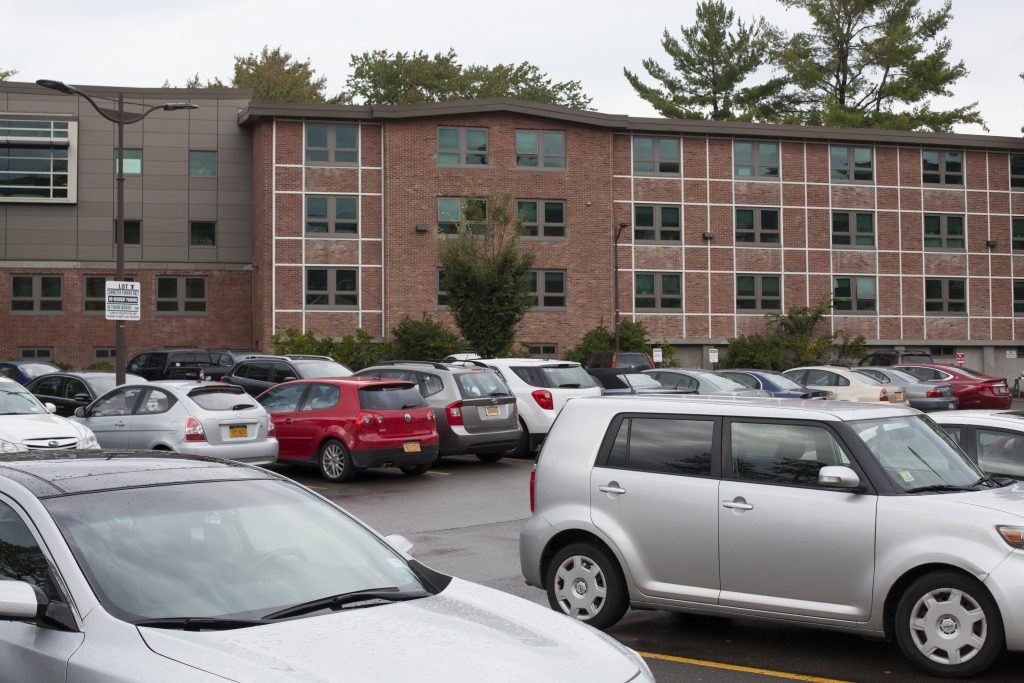
Students wishing to park on campus will no longer have to wait in line at Binghamton University Transportation and Parking Services (TAPS) for a sticker decal or hangtag.
Beginning this semester, TAPS has implemented license plate recognition software, meaning students can register their vehicles online and their license plates will automatically be registered in the parking system. A TAPS vehicle will then be able to determine which vehicles have active permits using a license plate recognition camera.
Susan Crane, director of parking services at TAPS, said BU’s growing population created a need for the new software.
“As the university keeps growing, we needed to continue moving in a direction that makes purchasing permits for all of our students, faculty, and staff visitors more efficient,” Crane wrote in an email. “We sent all students that are eligible to have a car on campus an email over the summer explaining the new system and to purchase a permit online.”
The new system has so far received positive reviews from students, many of whom said they were relieved to no longer have to wait for a decal.
“I definitely think it made the process a lot easier,” said Rob Steinberg, a junior majoring in integrative neuroscience. “Last year, I got my pass halfway through the year, so it was very annoying to have to carry around a temporary pass until they mailed me my new one. It also eliminates the possibility of students losing passes, which aren’t cheap.”
Katherine Gaudet, a senior majoring in history, said she appreciated the environmentally conscious nature of the new system.
“It’s nice to to just buy it online, have it connected to your car’s license plate and not have to wait for the decal to be shipped,” Gaudet said. “I also like how it’s eco-friendly by saving a lot of unneeded paper and plastic that were used to make the old decals.”
Students will also be able to update their information online and switch vehicles without an additional charge.
“Last year, I switched cars with my mom and they made me pay $25 to get a new sticker, but this year I just had to register both of the cars online and if I want to switch again I won’t have to pay,” said Jackie Madden, a junior majoring in nursing.
Currently, only one TAPS vehicle is equipped with a license plate recognition camera. According to Crane, another vehicle with a license plate recognition camera will be added later in the fall semester.
Since just one employee is needed to operate the equipped vehicle and ensure license plates are registered, Crane wrote that many TAPS staff members have been reassigned to other positions.
“Parking Staff will still be needed to staff university events, work in different areas on and off campus and provide assistance in our Paid Lot and main office,” Crane wrote.
Construction of an additional lot began in August in accordance with the University’s plan to create 400 additional parking spaces. The lot will be located next to the practice field near the West Gym.


